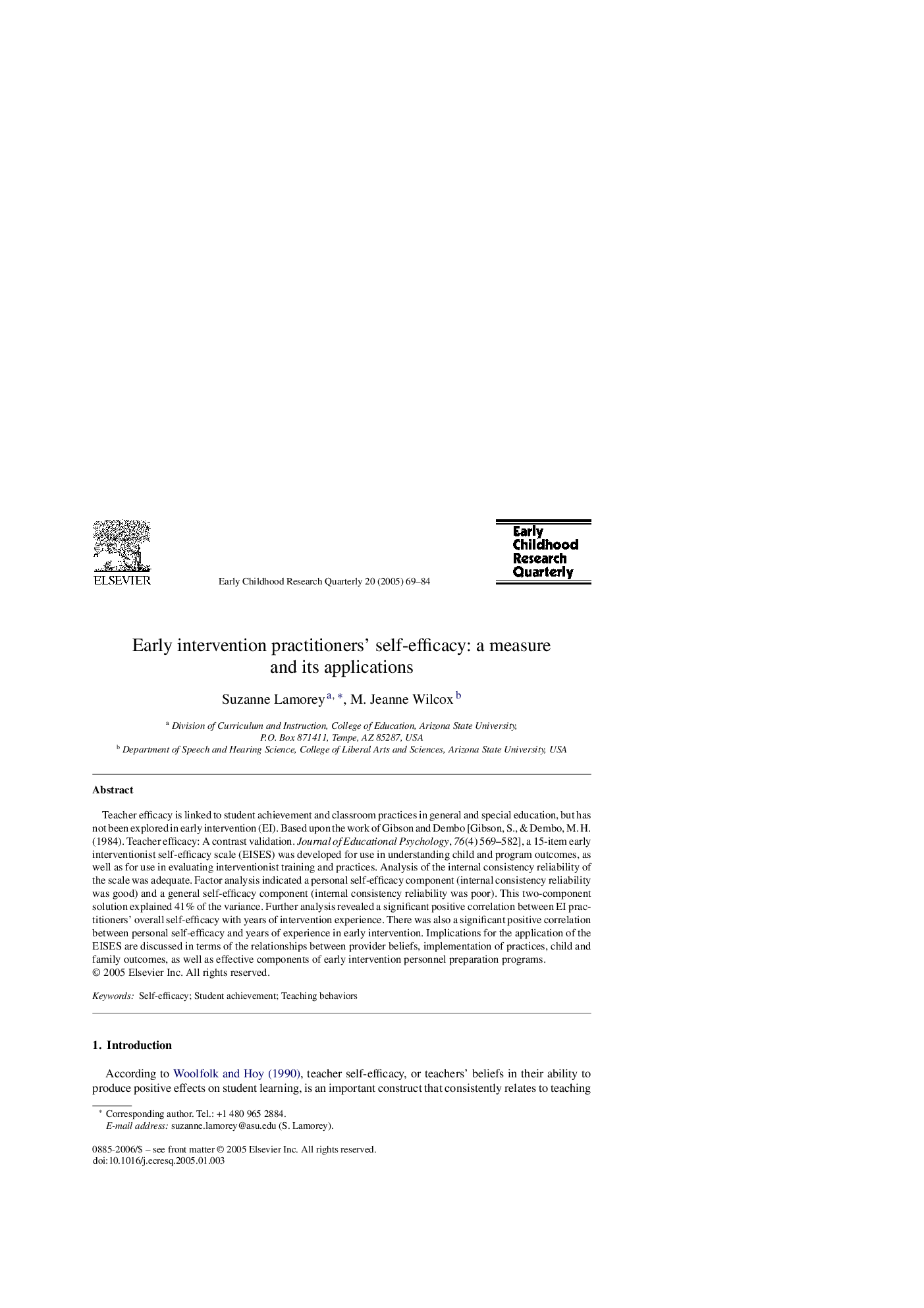| کد مقاله | کد نشریه | سال انتشار | مقاله انگلیسی | نسخه تمام متن |
|---|---|---|---|---|
| 10313605 | 618991 | 2005 | 16 صفحه PDF | دانلود رایگان |
عنوان انگلیسی مقاله ISI
Early intervention practitioners' self-efficacy: a measure and its applications
دانلود مقاله + سفارش ترجمه
دانلود مقاله ISI انگلیسی
رایگان برای ایرانیان
موضوعات مرتبط
علوم انسانی و اجتماعی
روانشناسی
روان شناسی کاربردی
پیش نمایش صفحه اول مقاله

چکیده انگلیسی
Teacher efficacy is linked to student achievement and classroom practices in general and special education, but has not been explored in early intervention (EI). Based upon the work of Gibson and Dembo [Gibson, S., & Dembo, M. H. (1984). Teacher efficacy: A contrast validation. Journal of Educational Psychology, 76(4) 569-582], a 15-item early interventionist self-efficacy scale (EISES) was developed for use in understanding child and program outcomes, as well as for use in evaluating interventionist training and practices. Analysis of the internal consistency reliability of the scale was adequate. Factor analysis indicated a personal self-efficacy component (internal consistency reliability was good) and a general self-efficacy component (internal consistency reliability was poor). This two-component solution explained 41% of the variance. Further analysis revealed a significant positive correlation between EI practitioners' overall self-efficacy with years of intervention experience. There was also a significant positive correlation between personal self-efficacy and years of experience in early intervention. Implications for the application of the EISES are discussed in terms of the relationships between provider beliefs, implementation of practices, child and family outcomes, as well as effective components of early intervention personnel preparation programs.
ناشر
Database: Elsevier - ScienceDirect (ساینس دایرکت)
Journal: Early Childhood Research Quarterly - Volume 20, Issue 1, 1st Quarter 2005, Pages 69-84
Journal: Early Childhood Research Quarterly - Volume 20, Issue 1, 1st Quarter 2005, Pages 69-84
نویسندگان
Suzanne Lamorey, M. Jeanne Wilcox,